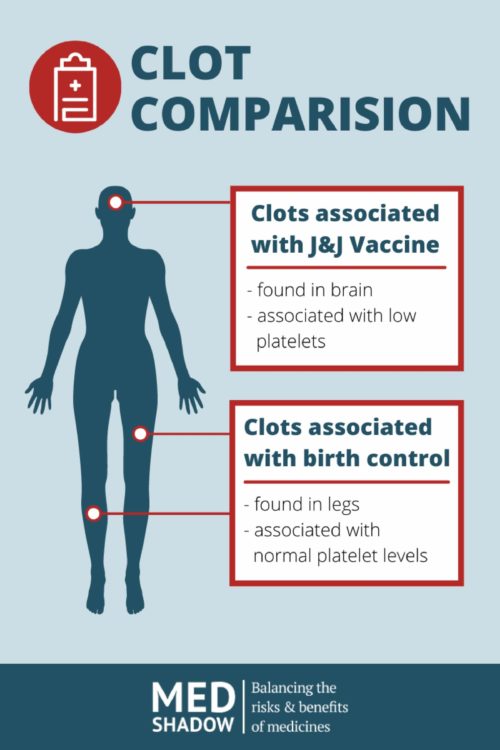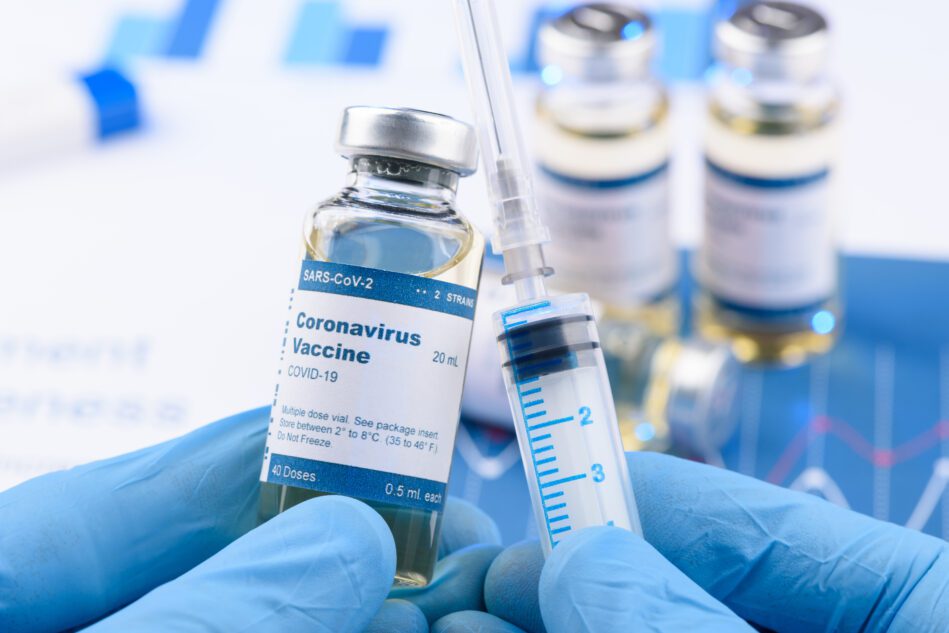Earlier this week, the United States paused the use of Johnson & Johnson’s (J&J) COVID-19 vaccine to investigate six cases of blood clots, one fatal, that occurred in women within two weeks of receiving the shot. MedShadow reported this in our vaccine side effect tracker article.
In a rush to assuage fears about taking the J&J vaccine, some experts, and even lay people, took to social media to put the risk in perspective. Many compared the potential of getting a blood clot from taking oral contraceptives (one in 1,000) to that of getting a blood clot from having the vaccine (less than one in 1 million). For some, though, the comparison inflamed, rather than calmed, them.
MedShadow has received questions from readers wondering if taking birth control pills would increase their risk of getting a blood clot from the vaccine, especially because all of the six women affected by the J&J vaccine are between the ages of 18 and 48.
MedShadow spoke to women’s health specialist Eileen Hoffman, MD, our medical advisory board member, about the J&J vaccine and blood clots. She explains that while women on birth control pills are at risk of experiencing certain types of blood clots, these clots are different from the ones seen after having the J&J vaccine.
Researchers are still investigating the reasons for the clots. What they’ve concluded so far is that they don’t think being on oral contraceptives impacts the risk of blood clots after vaccination.
MedShadow: What do we know about the blood clots that have been seen in people who took either the J&J, or the AstraZeneca, vaccines?
Dr. Hoffman: They are unusual blood clots associated mostly with clots in the brain, and [they are] associated with low-platelet count.
MedShadow: Why is it happening in the US with only the J&J vaccines, but not with the Pfizer and Moderna?
Dr. Hoffman: The vaccine from Johnson & Johnson is made from the adenovirus [a modified cold virus], versus the messenger RNA (mRNA), which is used in the Moderna and Pfizer vaccines. They are [the J&J, and the Moderna and Pfizer] made from two different things, and the clots may be a reaction to the adenovirus.
[Editor’s note: AstraZeneca’s vaccine, which has also been linked to a rare risk of blood clots, like J&J’s, made from an adenovirus. AstraZeneca’’s vaccine has not been approved for use in the US.]
MedShadow: What do we know about blood clots that can occur in women who take birth control pills?
Dr. Hoffman: While the blood clots with the vaccines are occurring in the brain and are associated with low-platelet counts, with oral contraceptives, the clots are mostly in the legs and platelet levels remain the same.
MedShadow: Does taking the birth control pill put a patient at higher risk of blood clots from the vaccines?
Dr. Hoffman: They [clots associated with oral contraceptives and the J&J vaccine] are two separate things. One does not increase the risk of the other.
 Signs of Blood Clots in the Leg
Signs of Blood Clots in the Leg
- Swollen leg
- Pain in one leg
- Redness
- Heat radiating from the area
Signs of Blood Clots in the Brain
- Headache
- Shortness of breath
- Chest pain
- Swollen leg, persistent abdominal pain
- Neurological symptoms like blurry vision
- Blood spots under the skin






